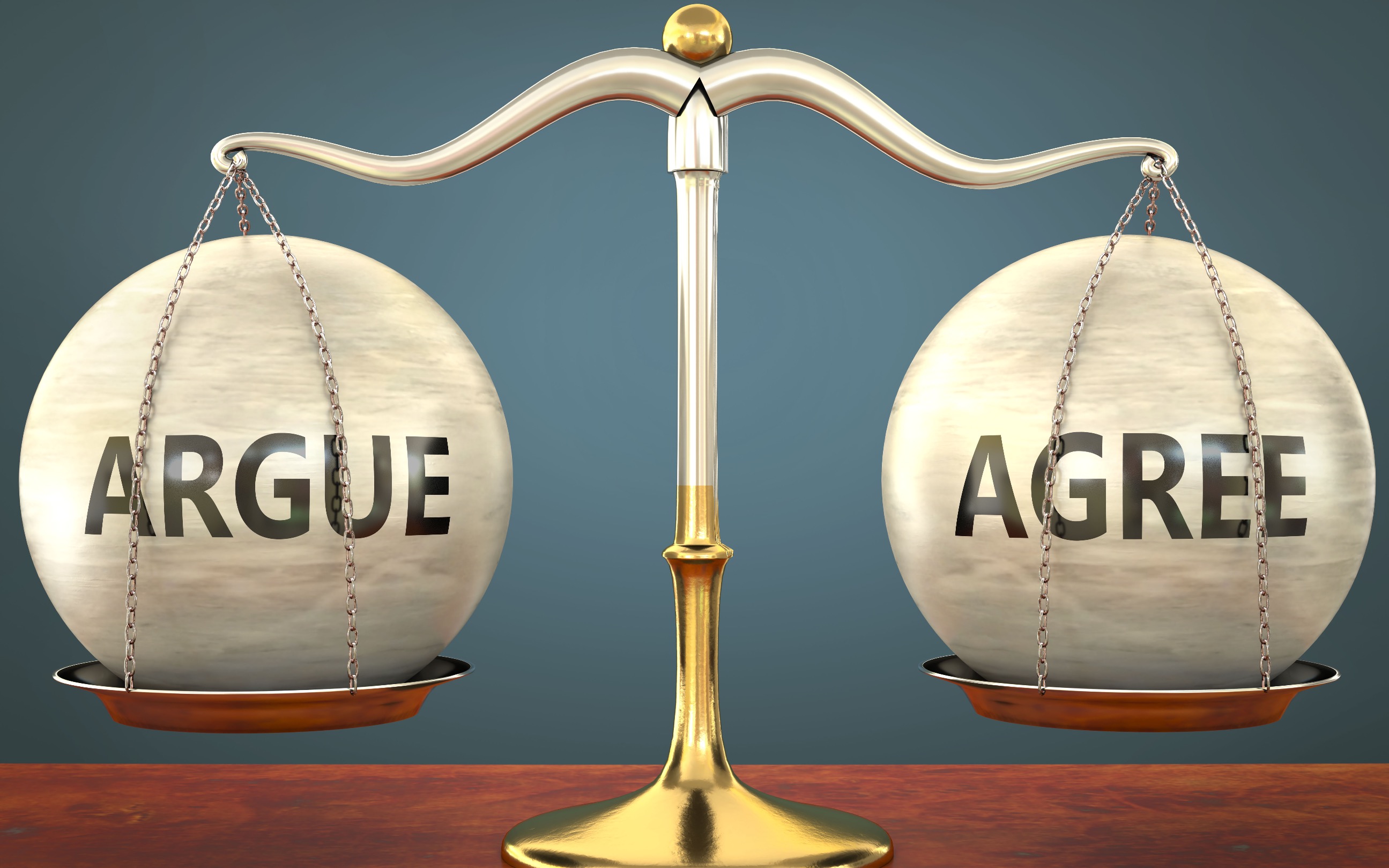When Words Won't Change Minds,
Should You Agree to Disagree?

The phrase “agree to disagree” often emerges as a last resort. In our increasingly polarized world, where opinions clash like cymbals and compromise seems like a forgotten language, is it simply a cop-out, a way to escape uncomfortable conversations, or can it be a valuable tool for maintaining peaceful coexistence?
On the surface, "agree to disagree" appears dismissive, suggesting an unwillingness to engage in meaningful dialogue. However, a closer look reveals its potential for navigating diverse viewpoints without sacrificing respect or civility. This phrase might be more nuanced than it seems.
Accepting the Limits of Persuasion
Not every conversation is meant to end in a shared conclusion. Sometimes, despite genuine effort, fundamental differences in values, experiences, or interpretations create impassable barriers. Recognizing these limitations allows us to step back and acknowledge the validity of diverse perspectives, even if we don't personally subscribe to them.
Disagreements, especially on sensitive topics, can easily escalate into personal attacks or damage relationships. Agreeing to disagree acts as a ceasefire, preventing further conflict and preserving the connection on other levels. This is particularly important in close relationships where mutual respect and understanding are paramount.
Paradoxically, accepting disagreement can open doors to further exploration. By acknowledging the existence of alternative viewpoints, we become more receptive to learning about them, even if we ultimately disagree. This fosters intellectual curiosity and challenges our own biases, potentially leading to personal growth and deeper understanding.
Rarely are issues black and white. Most matters encompass diverse perspectives, each containing elements of truth or validity. Agreeing to disagree allows us to appreciate this complexity, avoiding the trap of oversimplification and acknowledging the multi-faceted nature of reality.
If You Agree to Disagree as an Easy Escape
Agreeing to disagree is not without its limitations. It can be tempting to use as an easy escape from challenging discussions, especially when dealing with power imbalances and avoiding discord seems the etiquette-ful thing to do. While keeping conversation easy may be the more polite thing to do in some cases, it's crucial to ensure that all voices are heard and respected, even if their opinions differ from the majority.
While acknowledging differences is important, sometimes exploring potential areas of agreement can hinder progress. Before resorting to "agree to disagree," it might be important to simply ask to explore potential common ground and seek collaborative solutions.
Ultimately, "agree to disagree" is not a magic solution, but rather a tool to be used judiciously. When wielded thoughtfully, it can foster tolerance, respect, and understanding in a world brimming with diverse viewpoints. Remember, even when we disagree, we can still strive for civil discourse, mutual respect, and a shared commitment to building a better future.














